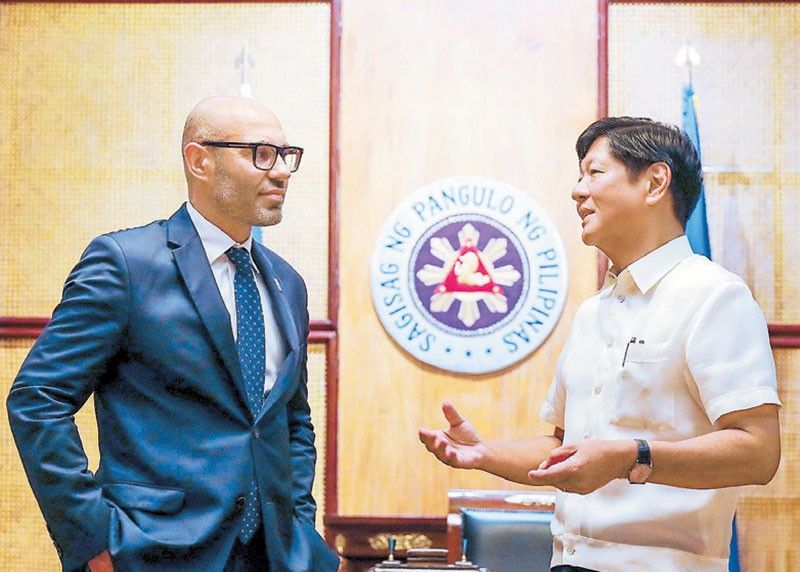Arbitration court chief eyes host country deal with Philippines

MANILA, Philippines — The chief of the inter-governmental body tasked as record keeper of the proceedings of the landmark arbitral ruling on the South China Sea yesterday expressed interest in forging a deal that would allow the Philippines to host its hearings.
Marcin Czepelak, secretary general of the Permanent Court of Arbitration (PCA), mentioned a possible host country agreement with the Philippines during his courtesy call on President Marcos at Malacañang.
“Czepelak expressed interest in exploring the potential for establishing a host country agreement with the Philippines to facilitate PCA hearings within the nation,” the Presidential Communications Office said in a statement.
“His (Czepelak) visit offers a valuable opportunity to highlight the Philippines’ commitment to international law, peaceful dispute resolution, and the PCA,” the PCO added.
The PCA was an offshoot of the 1899 The Hague Convention on the Pacific Settlement of International Disputes. The body has 121 member states.
In 2013, the tribunal on the South China Sea arbitration designated the PCA to serve as registry for the proceedings. The PCA was tasked to maintain an archive of the arbitral proceedings and provide appropriate registry services as directed by the arbitral tribunal, including assisting in the identification and appointment of experts, publishing information about the arbitration, and issuing press releases and organizing hearings.
In 2016, the arbitral tribunal ruled that China’s maritime claim in the South China Sea has no legal basis. The court also affirmed the Philippines’ sovereign rights over its 200-nautical-mile exclusive economic zone. China does nor recognize the ruling, describing it as “illegal” and downplaying it as “a mere piece of paper.”
The PCA has been forging host country agreements with contracting parties to make its dispute resolution services more accessible. Such an agreement creates a legal framework under which future proceedings administered by the PCA can be conducted in the host country without the need for a permanent physical PCA presence in that territory.
Marcos assured Czepelak that the Philippines would continue to adhere to international law.
“The Permanent Court of Arbitration is an important part of our foreign policy considering all the challenges that we are facing right now. And our continuing adherence to international law,” the President said.
“The court of arbitration is (important)… that is an argument that we make and have made in several instances. It’s very (gratifying you have visited) Manila,” he added.
In an Instagram post, Marcos said he and Czepelak talked about upholding international law in the Indo-Pacific region.
“As we mark the PCA’s 125th anniversary, let me remind everyone that the Philippines stands firm in solving conflicts through peaceful discourse. Our nation promotes peace within the region and beyond,” the President said.
In another post, this time on Facebook, Marcos reiterated that the Philippines “stands firm in supporting peaceful dispute resolution and ensuring stability in our region and beyond.”
He said his meeting with the PCA chief also tackled their “shared commitment” to upholding international law, particularly in the Indo-Pacific.
Czepelak arrived in the Philippines last Monday and will stay in the country until today. It is customary for PCA officials to visit contracting parties to promote the body’s dispute settlement mechanisms.
Before assuming as secretary-general of the PCA, Czepelak was Poland’s ambassador to the Netherlands and permanent representative to the Organisation for the Prohibition of Chemical Weapons.
Meanwhile, Defense Secretary Gilbert Teodoro told lawmakers he and other defense official are now in talks with the US for a broader interpretations of the 1951 Mutual Defense Treaty (MDT).
Teodoro made the disclosure upon questioning by ACT Teachers party-list Rep. France Castro, as he defended his department’s proposed budget for 2025 amounting to P254.115 billion before the House committee on appropriations.
Teodoro, however, emphasized the current MDT will not be amended.- Sheila Crisostomo, Michael Punongbayan
- Latest
- Trending




























